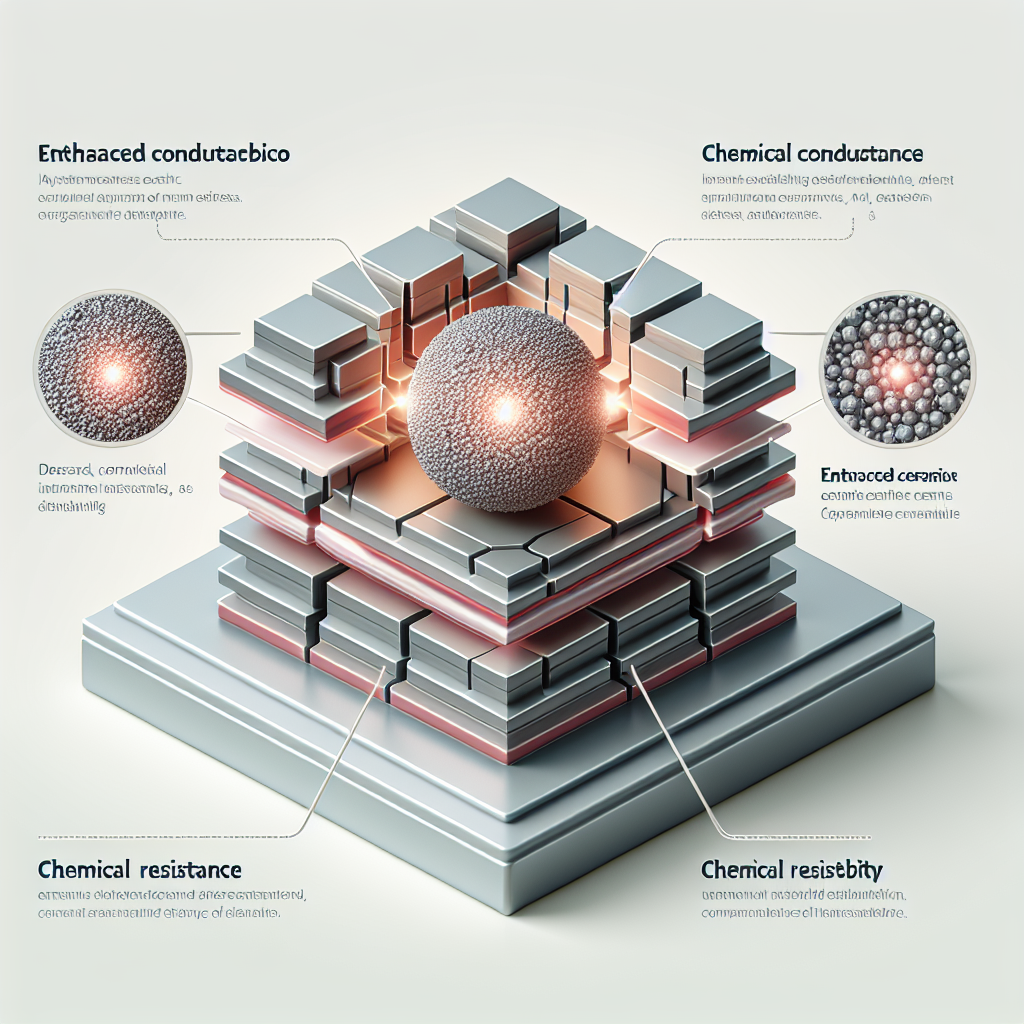### Advantages of Silicon Carbide Ceramic
Silicon carbide (SiC) ceramic is a highly versatile material that has been used in a wide range of applications due to its unique physical and chemical properties. This advanced ceramic material exhibits exceptional characteristics that make it suitable for environments where other materials might fail. In this article, we will explore the numerous advantages of silicon carbide ceramic, highlighting its importance in modern engineering and technology.
#### 1. Exceptional Hardness and Strength
Silicon carbide is renowned for its exceptional hardness, which ranks just below diamond and boron carbide. This extreme hardness makes SiC an excellent material for abrasive and cutting applications. It can easily cut through harder materials, which is why it is often used in grinding wheels, cutting tools, and other abrasive applications. Additionally, SiC ceramics possess high mechanical strength, which is maintained even at elevated temperatures. This strength is crucial in applications such as automotive brakes and clutches, where high durability and resistance to wear are required.
#### 2. High Thermal Conductivity and Stability
One of the standout features of silicon carbide is its high thermal conductivity, which is significantly better than other ceramics and even some metals. This property ensures efficient heat dissipation, making SiC an ideal choice for heat exchangers, burner nozzles, and turbine components. The material’s ability to maintain its structural integrity and mechanical properties at high temperatures is known as thermal stability. Silicon carbide can withstand temperatures up to 1600°C without losing its strength, making it suitable for use in high-temperature applications such as gas turbines and combustion engines.
#### 3. Excellent Wear Resistance
The hardness and strength of silicon carbide confer excellent wear resistance, which is critical in many industrial applications. SiC can withstand severe abrasive and erosive environments, which makes it ideal for use in bearings, seals, and pump components that are exposed to abrasive particles. The longevity and durability provided by SiC components can lead to reduced maintenance costs and longer service intervals.
#### 4. Chemical Inertness
Silicon carbide is chemically inert and exhibits high resistance to corrosion by acids, alkalis, and molten metals. This chemical stability makes it an excellent material for chemical processing equipment, such as reactors, heat exchangers, and liners. SiC’s resistance to chemical attack ensures that it can operate in harsh chemical environments without degrading, thus extending the life of the equipment and reducing replacement costs.
#### 5. Low Thermal Expansion Coefficient
The thermal expansion coefficient of silicon carbide is relatively low compared to other ceramics. This property minimizes the size changes that SiC undergoes when exposed to temperature fluctuations, thereby reducing the risk of thermal shock. This is particularly important in applications involving rapid temperature changes, such as in semiconductor manufacturing equipment and space telescope mirrors.
#### 6. Electrical Properties
Silicon carbide is a semiconductor, which allows it to be used in electronic devices that operate at high voltages, high temperatures, or both. SiC-based devices exhibit higher efficiency, faster switching speeds, and greater power densities than their silicon counterparts. These properties make SiC an excellent material for power components such as diodes, transistors, and thyristors used in power grids, electric vehicles, and renewable energy technologies.
#### 7. Lightweight
Compared to metals, silicon carbide is relatively lightweight, which is an essential factor in aerospace and automotive applications. The use of SiC can lead to a significant reduction in weight, which improves fuel efficiency and performance. For instance, SiC is used in the manufacture of mirrors for space telescopes and other satellite components, where both high stiffness and low weight are crucial.
#### 8. Biocompatibility
Silicon carbide is also biocompatible, meaning it is suitable for medical implants and devices. It does not produce harmful or toxic substances in the body, making it an excellent material for applications such as prostheses and other implants. The hardness and wear resistance of SiC ensure that these medical devices are durable and long-lasting.
###### Висновок
The advantages of silicon carbide ceramic are manifold, encompassing exceptional mechanical properties, thermal stability, chemical inertness, and versatility in various high-performance applications. From industrial processing and automotive components to aerospace and electronics, SiC ceramics are proving to be indispensable in advancing technology and improving the efficiency and durability of critical systems. As research continues to enhance its properties and find new applications, the role of silicon carbide in modern technology will undoubtedly expand, reinforcing its status as a superlative engineering material.
